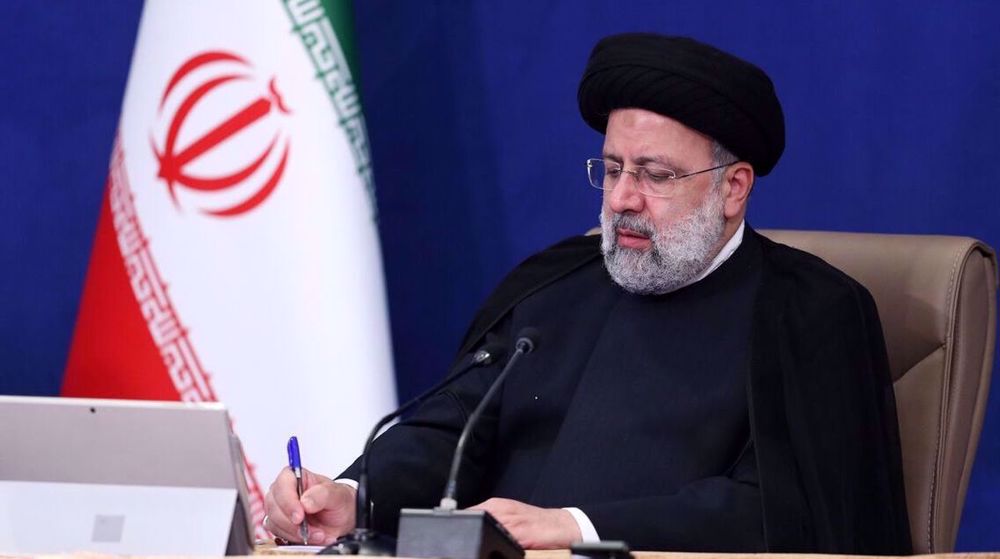POLITICS 'Iran, China consider unilateralism, sanctions as root causes of insecurity, crises' President Raeisi says Iran and China consider unilateralism and oppressive sanctions as root causes of insecurity and crises.


President Ebrahim Raeisi says Iran and China consider unilateralism and cruel sanctions as the root causes of existing crises and spread of insecurity and stress the need for multilateralism as well as worldwide justice.
Raeisi made the remarks in an op-ed article published in the People’s Daily, the official newspaper of the Central Committee of the Chinese Communist Party (CCP).
“As two living and dynamic human civilizations, Iran and China were connected to each other via the historic Silk Road, and ascertained the fact that prosperity and happiness as desirable popular goals can only be achieved through interaction and cooperation,” he wrote.
He noted that Tehran and Beijing, which have signed a 25-year agreement to develop mutual cooperation in various fields, enjoy a host of commonalities, pursue similar approaches a propos international developments, are opposed to imperialism as well as unilateralism, and stress the need for respect for other countries’ rights and national interests.
“Both countries view unilateralism and coercive measures, including oppressive sanctions, as the main root of the crises and insecurity, and call for collective efforts in order to obtain genuine multilateralism, besides worldwide justice, international equality and a balanced world order,” the Iranian president said
“The basic interests and rights of nations, including the right to development, are non-negotiable. Any attempt by arrogant powers to politicize issues and consequently deprive nations, at the expense of exploitation of international mechanisms, is condemned,” Raeisi noted.
“Iran, given its Islamic teachings and respect for all religions, is fiercely opposed to extremism and terrorism and consider them as contrary to pure Islam and human progress. Pure Islam is against terrorism, extremist and Takfiri ideology. We believe that the only way to ensure security is to rely on regional actors. Experience has shown that foreign intervention only leads to the exacerbation of insecurity and spread of terrorism in the West Asia region,” he said.
“Iran’s valuable experience in the fight against Daesh Takfiri terrorists, and success to prevent its spread to other parts of the world clearly showed that Iran is a guarantor of peace and stability and uses its military prowess only to deter arrogant powers.
“The Islamic Republic seeks maximum interaction with all countries of the world, especially friendly powers like China. Beijing has always shown how a country can develop without exercise of colonialism – something which is characteristic of Western powers – and help others develop as well. The Islamic Republic of Iran values such an approach,” Raeisi commented.
The Iranian president went on to describe China’s ambitious Belt and Road initiative as a large-scale project, which will spur development and will serve as a cultural and industrial turning point.
“Nowadays, Iran has made major breakthroughs in various fields of science, such as stem cells, space industries, biotechnology, nanotechnology and nuclear technology.
“Political independence, military might to ensure security, educated manpower, low cost of production, energy reserves, transit location and industrial infrastructure are only part of Iran’s capacities that can be tapped in order to deepen the strategic partnership between Iran and China,” Raeisi said.
The spokesperson for China’s Foreign Ministry Hua Chunying announced on Sunday that the Iranian president will pay a state visit to China from February 14 to 16 at the official invitation of his Chinese counterpart Xi Jinping.
Before his departure, Leader of the Islamic Revolution Ayatollah Seyed Ali Khamenei wished President Raeisi success and great achievements on his trip to China.



